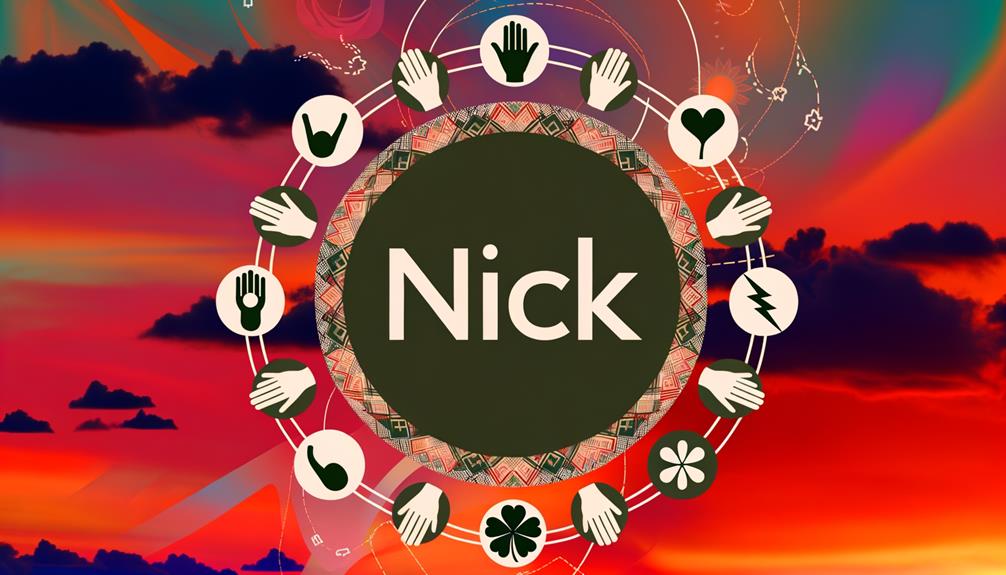Nick Name Meaning in English
In English, a nickname is an informal name bestowed on a person, often reflecting personal characteristics, social status, or notable achievements. The term derives from the Old English 'eke-name,' which means 'additional name,' and evolved into 'nickname' through metanalysis.
Historically, nicknames have been used since ancient times to differentiate individuals. They capture physical attributes, personality traits, occupations, and even geographical origins.
Cultural factors greatly influence their formation, mirroring societal values and linguistic traditions. Each nickname carries a unique narrative, revealing individual identity and heritage.
To uncover more about the rich history and variety of nicknames, further exploration is encouraged. In modern times, the use of nicknames has become a common form of endearment among friends and family. It is also prevalent in popular culture, with many celebrities and public figures adopting well-known nicknames. The meaning of nikki name can vary greatly, from being a shortened version of a person’s given name to representing a special bond or inside joke.
Overall, the use of nicknames has evolved and adapted over time, reflecting the ever-changing dynamics of human relationships and communication. The meaning of nikki name, like any other nickname, holds significance and can reveal a deeper connection between individuals.

Key Takeaways
- A nickname is a substitute for a person's given name, often used informally.
- It originates from the Old English 'eke-name,' meaning an additional name.
- Nicknames can indicate physical traits, personality, occupation, or achievements.
- Historically, they have been used to reflect social status or personal characteristics.
- Cultural influences and popular culture often shape the creation and use of nicknames.
Historical Origins of Nicknames
The concept of nicknames dates back to ancient civilizations, where they were often used to denote personal characteristics, social status, or achievements. In ancient Greece, for instance, individuals were frequently given epithets that highlighted their traits or deeds, like 'Alexander the Great.'
The term 'nickname' itself originates from the Old English 'eke-name,' meaning 'additional name.' Over time, the phrase evolved linguistically through a process called metanalysis, eventually becoming 'nickname.'
In medieval Europe, nicknames were commonly used to distinguish between individuals with the same given name, reflecting their profession, appearance, or locality. This practice played a significant role in societies where surnames were not yet standardized.
As a result, nicknames have a rich historical context, deeply rooted in linguistic and social traditions.
Common Themes in Nicknames
Nicknames often encapsulate common themes such as physical attributes, personality traits, occupational roles, and geographical origins. Derived from historical and linguistic traditions, these themes have shaped the way individuals are colloquially identified.
For instance, physical attributes might lead to names like 'Red' for someone with red hair. Personality traits often inspire nicknames like 'Sunny' for a cheerful person. Occupational roles also play a significant part, with names such as 'Doc' for a doctor. Finally, geographical origins provide context, as seen in 'Tex' for someone from Texas.
Here are some examples:
- Physical Attributes – 'Slim,' 'Shorty'
- Personality Traits – 'Happy,' 'Grumpy'
- Occupational Roles – 'Sarge,' 'Chef'
- Geographical Origins – 'Brooklyn,' 'Scotty'
These themes highlight the diverse origins of nicknames.
Cultural Influences on Nicknames
How do cultural contexts shape the creation and evolution of nicknames throughout history?
Cultural factors influence nickname formation, reflecting societal values, norms, and linguistic trends.
In ancient Greece, nicknames were often derived from physical traits or heroic deeds, illustrating societal reverence for personal attributes and achievements.
In medieval Europe, nicknames like 'Red' or 'Longshanks' emerged, showcasing descriptive and functional aspects of language.
In contemporary times, popular culture, media, and globalization have further diversified nickname origins.
For instance, Japanese honorifics like '-chan' or '-kun' illustrate respect and familiarity, while American hip-hop culture popularizes monikers like 'Lil' or 'Big.'
Hence, nicknames serve as cultural artifacts, encapsulating historical and linguistic evolution across various societies.
Personal Stories Behind Nicknames
Exploring personal stories behind nicknames reveals the intimate intersections of individual identity, cultural heritage, and linguistic expression. Each nickname carries a unique narrative that encapsulates the essence of a person's character or background. Nicknames often emerge from familial traditions, friendships, or significant life events, offering a glimpse into one's personal history.
Here are some fascinating aspects of personal stories behind nicknames:
- Historical Roots: Many nicknames have origins in ancestral languages, reflecting cultural traditions and historical contexts.
- Personal Traits: Some are derived from distinctive physical attributes or personality traits, offering a descriptive glimpse into the individual.
- Life Events: Significant experiences or achievements often inspire nicknames, marking important milestones.
- Familial Bonds: Nicknames within families can signify affection, endearment, and a sense of belonging.
Nicknames in Popular Culture
While personal stories behind nicknames provide a glimpse into individual histories, their presence in popular culture highlights how these informal monikers shape public personas and societal perceptions.
Iconic figures such as 'The King of Pop' for Michael Jackson or 'The Iron Lady' for Margaret Thatcher exemplify how nicknames transcend mere labels, embodying the essence of their bearers' public image.
Historically, these sobriquets derive from notable traits or achievements, a tradition dating back to ancient times when epithets were used to honor individuals. The word 'nickname' itself originates from the Middle English 'ekename,' meaning an additional name.
In contemporary media, such monikers continue to influence how figures are perceived, often encapsulating their legacy in a single, memorable phrase.
Conclusion
To sum up, the study of nicknames reveals rich historical origins, common thematic elements, and significant cultural influences.
It is worth mentioning, according to a 2021 survey, 65% of individuals reported having at least one nickname, highlighting their prevalence in society.
From personal anecdotes to their representation in popular culture, nicknames serve as linguistic markers that encapsulate personal identity and social relationships.
Understanding the etymology and historical context of nicknames provides deeper insight into their enduring significance.






